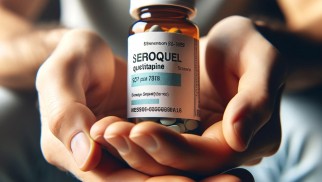What is Major Depressive Disorder? How to Treat?


Major depressive disorder (MDD), commonly referred to as clinical depression, is a significant mental health condition that impacts millions worldwide. Characterized by persistent feelings of sadness, hopelessness, and a lack of interest in daily activities, MDD can profoundly affect an individual's quality of life. The disorder transcends mere emotional distress; it encompasses physical symptoms such as sleep disturbances, changes in appetite, and fatigue, making everyday tasks challenging.
The Complex Causes of Major Depressive Disorder
The etiology of major depressive disorder is complex and multifaceted, involving a combination of genetic, biological, environmental, and psychological factors. Research indicates that imbalances in brain chemistry, particularly neurotransmitters like serotonin and dopamine, play a critical role. Additionally, life events such as trauma, loss of a loved one, or high stress can trigger or exacerbate depressive episodes.
Diagnosis and Assessment of Major Depressive Disorder
Diagnosis of MDD is typically made based on a comprehensive evaluation, including a detailed patient history and symptom assessment. Healthcare professionals rely on established criteria, such as those outlined in the Diagnostic and Statistical Manual of Mental Disorders (DSM), to diagnose and categorize the severity of depression.
Therapeutic Approaches to Major Depressive Disorder
Treatment for major depressive disorder is personalized, often involving a combination of psychotherapy and medication. Cognitive-behavioral therapy (CBT) is a commonly employed therapeutic approach, helping patients identify and modify negative thought patterns and behaviors. Interpersonal therapy (IPT) and psychodynamic therapy are also effective in addressing underlying issues contributing to depression.
Medications and Their Role in Treating Depression
Pharmacotherapy plays a crucial role in managing MDD. Antidepressants, particularly selective serotonin reuptake inhibitors (SSRIs) and serotonin-norepinephrine reuptake inhibitors (SNRIs), are standard treatments. These medications work by altering the brain's chemical balance, improving mood and emotional stability.
Seroquel (Quetiapine) in the Treatment of Major Depressive Disorder
Seroquel (Quetiapine), an atypical antipsychotic, has shown efficacy in treating MDD, particularly in cases resistant to traditional antidepressants. It is believed to work by modulating neurotransmitters in the brain, though its exact mechanism in treating depression is not fully understood. Quetiapine is often used in conjunction with other antidepressants, enhancing their effectiveness.
Comprehensive Care and the Path to Recovery
It's crucial for individuals with MDD to receive comprehensive care, which may include lifestyle modifications, support groups, and regular monitoring by healthcare professionals. Early intervention and adherence to treatment plans significantly improve outcomes, offering hope and improved quality of life to those affected by this challenging disorder.
Future Directions in Managing Major Depressive Disorder

As our understanding of major depressive disorder evolves, so do the strategies for its management. Ongoing research into the biological underpinnings of depression and the development of novel therapeutics offers a beacon of hope. The journey towards recovery from MDD is deeply personal and often challenging, but with the right support and treatment, it is a journey that many can navigate successfully.
(Updated at Apr 15 / 2024)
Seroquel Quetiapine articles:
Some of the trademarks used in this Web Site appear for identification purposes only.
All orders are reviewed by a licensed physician and pharmacist before being dispensed and shipped.
The statements contained herein are not intended to diagnose, treat, cure or prevent disease. The statements are for informational purposes only and is it not meant to replace the services or recommendations of a physician or qualified health care practitioner. If you have questions about the drugs you are taking, check with your doctor, nurse, or pharmacist.

